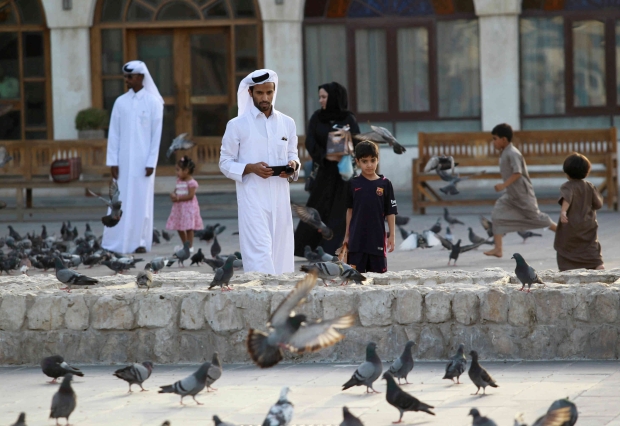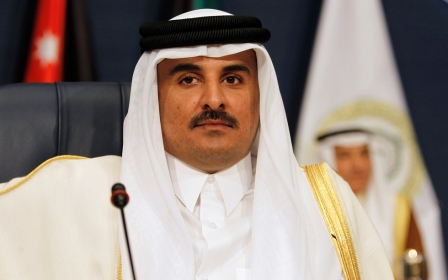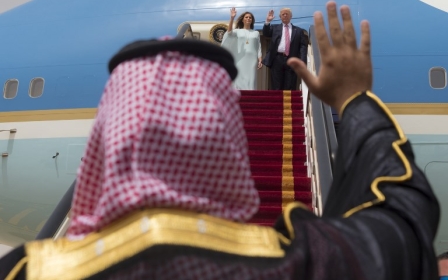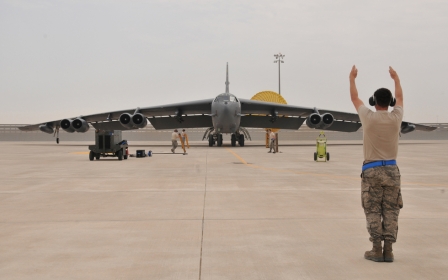'We are not ready to surrender,' Qatar's foreign minister says
A dispute between Qatar and some Arab states is threatening the stability of the entire region, Qatar's foreign minister said on Thursday, adding diplomacy was still Doha's preferred option and there would never be a military solution to the problem.
Sheikh Mohammed bin Abdulrahman al-Thani told reporters that Qatar had never experienced this type of hostility, even from an enemy country. He said there had been no change to Qatar's military deployment and no troops had been moved.
"We are not ready to surrender, and will never be ready to surrender, the independence of our foreign policy," al-Thani said.
"We have been isolated because we are successful and progressive. We are a platform for peace not terrorism ... This dispute is threatening the stability of the entire region," he added.
Saudi Arabia, Bahrain, Egypt, the United Arab Emirates and several other countries severed relations with Doha on Monday, accusing it of supporting "Islamist militants" and their arch-foe Iran - charges Qatar says are baseless.
Qatar’s King Hamad of Bahrain met Egyptian President Abdel Fattah al-Sisi in Cairo on Thursday. In a statement issued by the Egyptian presidency, they gave no sign they were ready to compromise with Doha.
"The leaders agreed the decision came after Qatar insisted on taking a path that is harmful to Arab states and after attempts to prevent it from supporting terrorist groups," the statement said.
"Qatar insisted on interfering in the domestic affairs of Egypt, Bahrain, and other Arab countries in a way that threatens their safety and security and harms Arab national security and unity."
Earlier on Thursday, Bahrain's foreign minister reiterated a demand that Doha distance itself from Iran and stop support for "terrorist organisations".
Iranian cargo plane delivers food
Meanwhile, Iran confirmed on Thursday that it was sending its first cargo plane carrying food supplies to Qatar, according to the Iranian-backed Press TV.
And the Emirates Post Group said that it had stopped all types of postal services to Qatar despite the UAE's continued diplomatic relations with Iran.
In an interview published by Saudi-owned Asharq al-Awsat newspaper, Sheikh Khalid bin Ahmed al-Khalifa said conditions posed by the four countries for a resolution of the crisis were "crystal clear".
"Qatar has to redress its path and has to go back to all previous commitments, it has to stop media campaigns and has to distance itself from our number one enemy, Iran," he said.
"It has to realise its interests are with us, not with another country that conspires against us, wants to dominate and divide us. It has to stop supporting terrorist organisations, Sunni or Shia, and its policy has to be for the benefit of its people."
In some of the strongest comments related to those efforts by a senior Gulf Arab official, Sheikh Khalid told the newspaper he doubted whether Qatar would change its behaviour.
On Thursday, Bahrain's information ministry warned local media from posting any statements in support of Qatar, according to the state news agency.
Kuwait's ruler, Sheikh Sabah al-Ahmad al-Jaber al-Sabah, travelled from the UAE to Qatar on Wednesday after visiting Saudi Arabia the day before to try to resolve the crisis.
Turkey approves Qatari troop deployment
Turkey's parliament on Wednesday approved a draft bill allowing its troops to be deployed to a Turkish military base in Qatar, an apparent move to support the Gulf Arab country when it faces diplomatic and trade isolation.
Ankara's move comes a day after US President Donald Trump sided with Saudi Arabia in its rift with Qatar and accused Doha of "funding extremism".
Trump is continuing to talk to with all partners in the Middle East to de-escalate tensions, a White House spokeswoman said on Thursday, but gave no other details.
The US president spoke with the emir of Qatar on Wednesday and offered help in resolving the crisis, the White House said.
"The president emphasised the importance of all countries in the region working together to prevent the financing of terrorist organisations and stop the promotion of extremist ideology" in his call with the emir, the White House said.
Trump offered to help resolve the diplomatic crisis, including through a White House meeting, the statement said.
The US president also spoke by telephone on Wednesday with Abu Dhabi's crown prince and stressed the importance of unity among Gulf Arab states, the White House said.
Trump "emphasized the importance of maintaining a united Gulf Cooperation Council to promote regional stability, but never at the expense of eliminating funding for radical extremism or defeating terrorism," during a call with Sheikh Mohammed bin Zayed al-Nahayan, Abu Dhabi's crown prince, the White House said in a statement.
Russian hackers?
Meanwhile, US Secretary of Defense James Mattis called Saudi Deputy Crown Prince Mohammed bin Salman on Wednesday, a day after he spoke to his Qatari counterpart via phone and praised Qatar’s "enduring commitment to regional security".
The growing Gulf crisis has also pulled the Kremlin and the White House into its orbit, as Moscow dismissed allegations that Russian hackers helped spark tension between Qatar and its former allies.
US officials believe Russian hackers were responsible for the false news story on the state-owned Qatar News Agency two weeks ago that precipitated the conflict, CNN reported on Tuesday.
Andrei Krutskikh, a Kremlin adviser on cybersecurity, told the Interfax news agency: "We're getting tired of reacting to unsubstantiated banalities."
"Whatever happens, it is hackers. It's a stale claim and as ever there is zero evidence, and conclusions are drawn before the incident is even investigated."
Qatar’s foreign minister, Sheikh Mohammed Bin Abdulrahman al-Thani, told CNN on Tuesday that the hacking of Qatar's national news agency was "proved by the FBI".
The US Federal Bureau of Investigations had sent a team to the capital Doha to assist Qatari authorities in finding out what happened.
Middle East Eye propose une couverture et une analyse indépendantes et incomparables du Moyen-Orient, de l’Afrique du Nord et d’autres régions du monde. Pour en savoir plus sur la reprise de ce contenu et les frais qui s’appliquent, veuillez remplir ce formulaire [en anglais]. Pour en savoir plus sur MEE, cliquez ici [en anglais].





